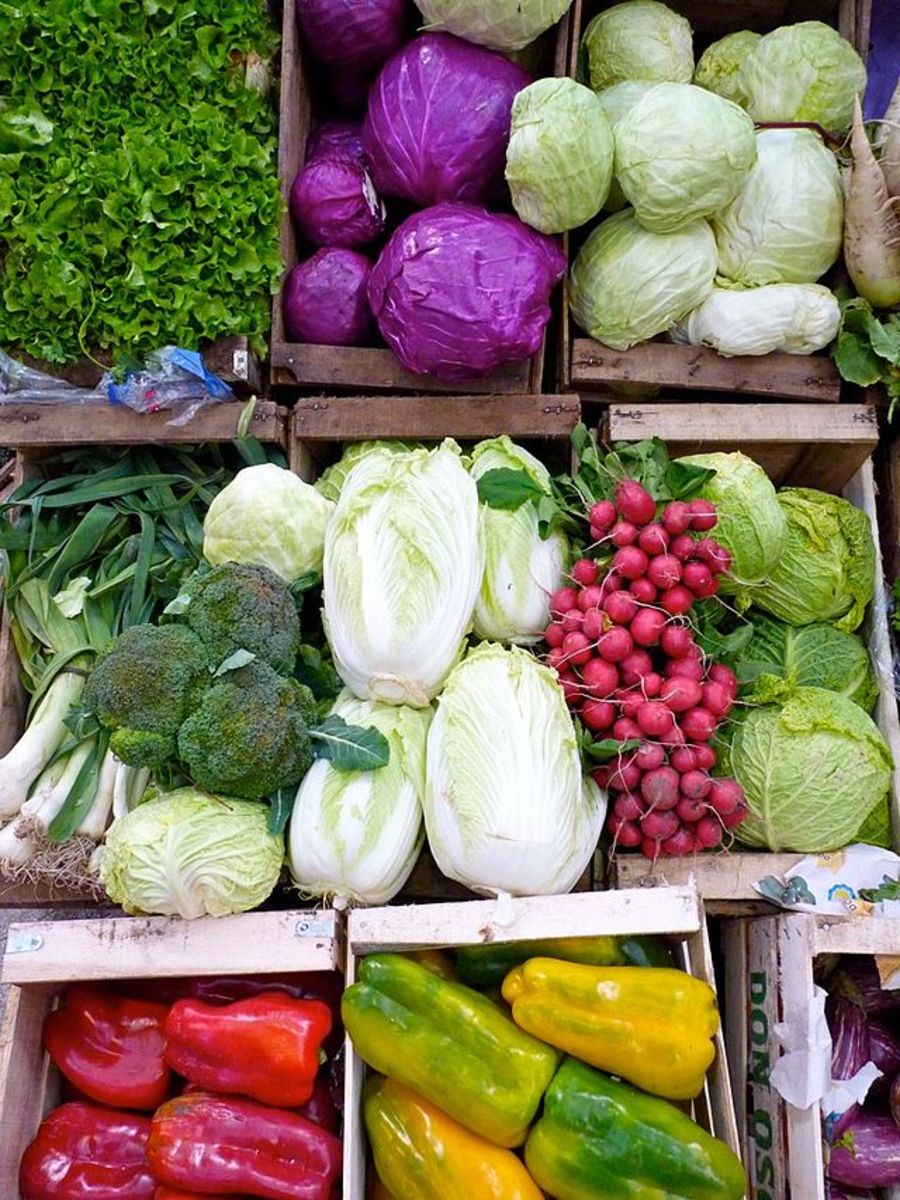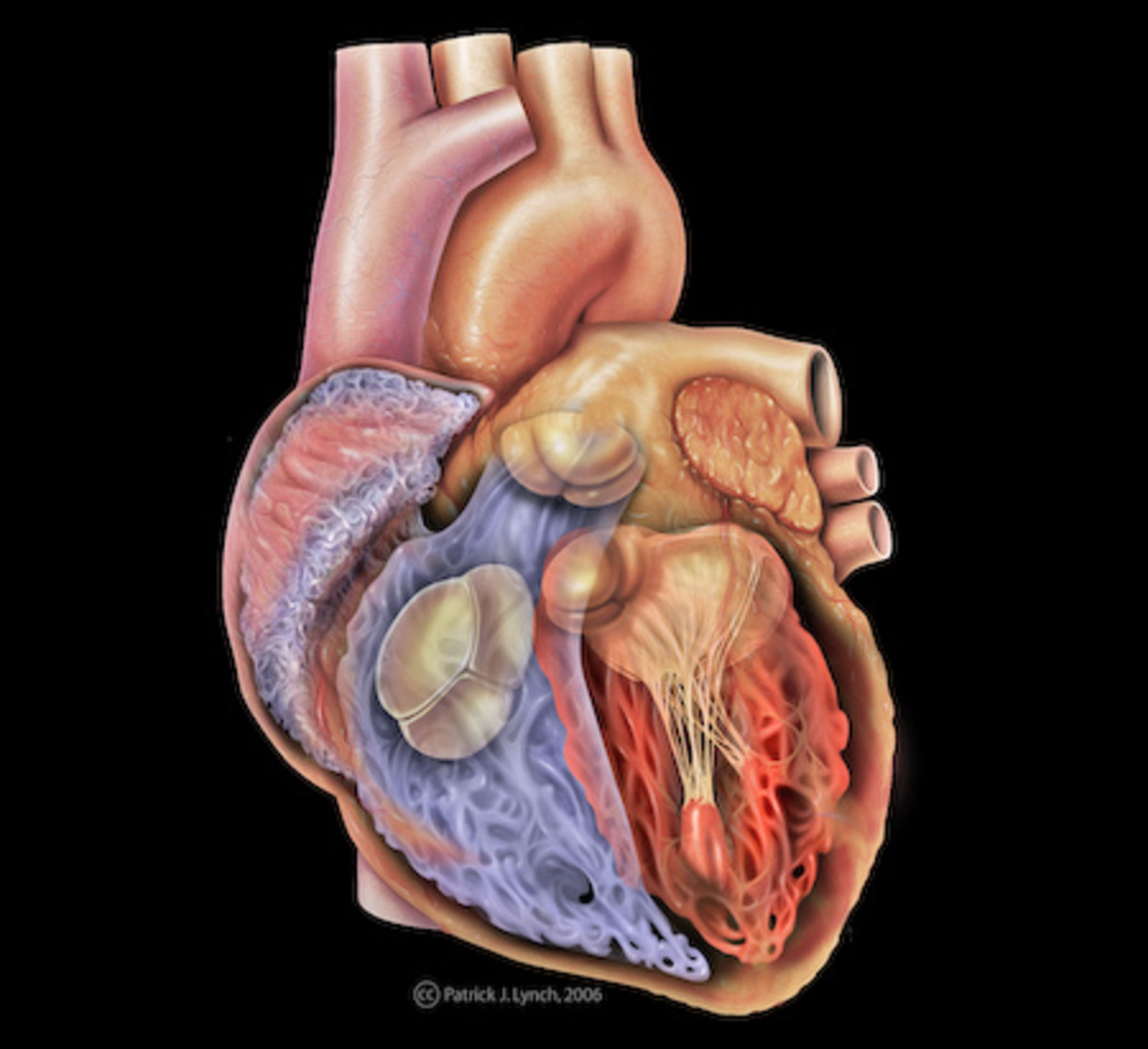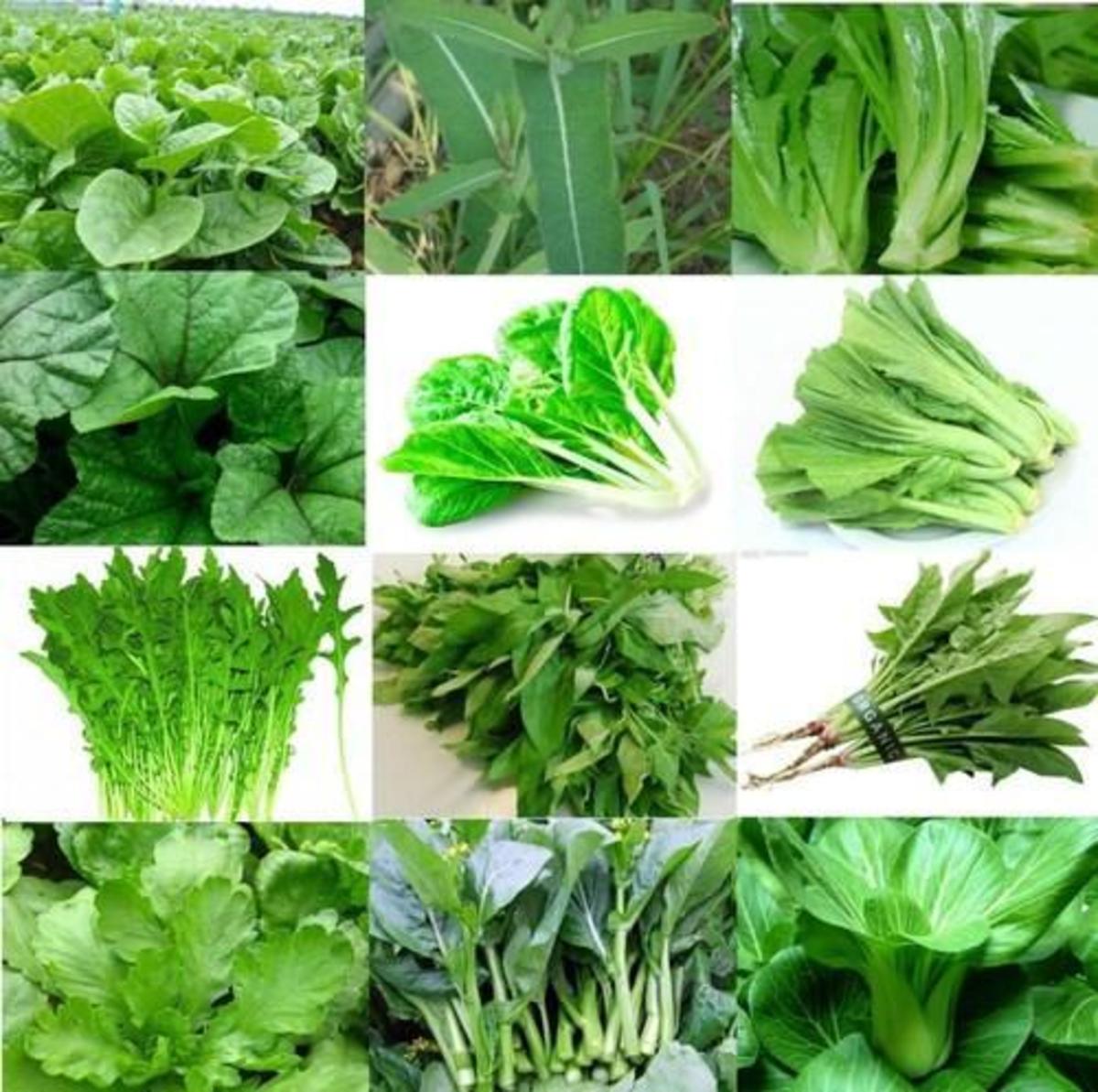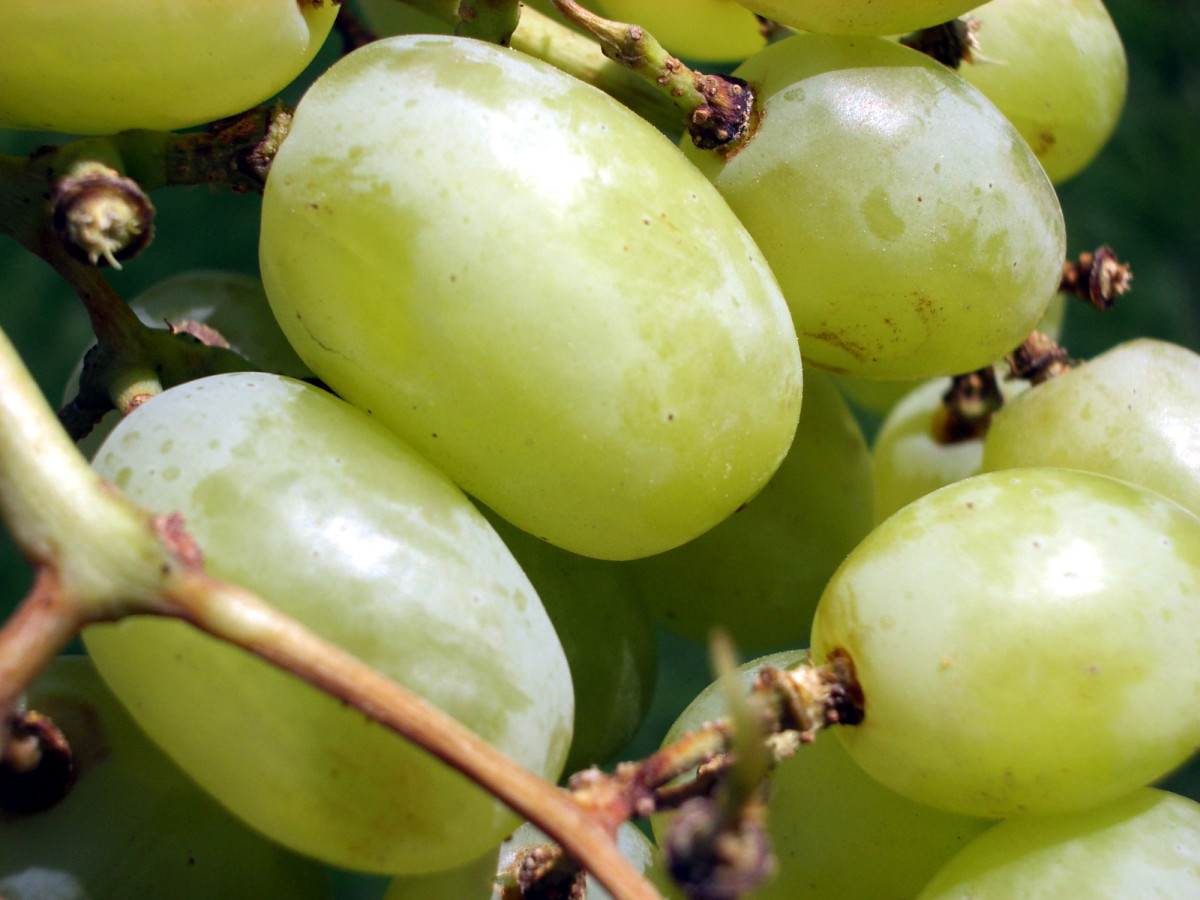Top 6 Foods You Should Eat More Often

Which of these berries is your favorite?
Did you set a New Year's Resolution to eat healthier? Here are 6 nutrient dense foods that you probably aren't eating often enough. Working each of these foods into your diet at least a few times a week, will help ensure proper nutrition.
#6- Avocado
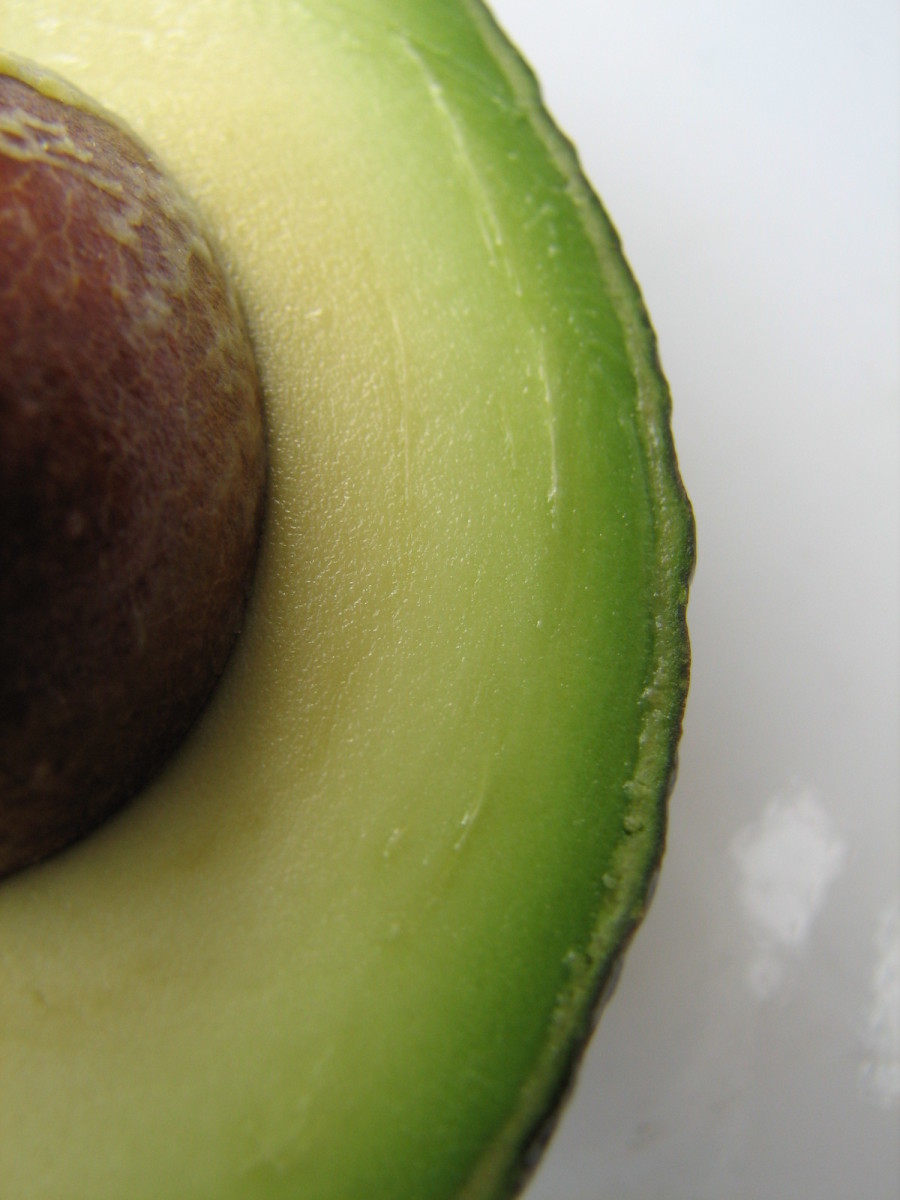
Avocados Are Great for Your Skin
Being a good source of vitamin E, vitamin C, vitamin A, and antioxidants, mashed avocado makes a great facial treatment! Vitamins A, C, and E themselves are antioxidant vitamins, and with the other antioxidant compounds in avocados, they help to heal damaged skin, moisturize and restore a youthful, refreshing glow.
Don't forget to eat some avocado too. The high fiber content which aids in healthy bowel movements, sweeps toxins from your body which can build up in your pores.
Good Fatty Avocados
Also known as 'alligator pears', avocados are full of phytonutrients, flavonoids, antioxidants, vitamins and minerals. Avocados are high in potassium, vitamin B6 and dietary fiber, with nearly twice the potassium of a banana! They are also a good source of vitamin C and vitamin E, and contain magnesium, iron, and Vitamin A.
Compounds in avocados can help prevent heart disease and stroke by reducing plaque in the arteries and lowering blood pressure. Avocados also help prevent certain cancers, particularly prostate and ovarian cancers. And, they contain the carotenoid, lutein, which protects your eyesight, and prevents macular degeneration and cataracts.
But my favorite thing about avocados, is that they are high in mono-saturated fats. Though saturated fats are often labeled 'bad fats', you do need some of them in your diet. They can aid in weight loss and weight maintenance, because when they hit the stomach, they signal hormones that tell your brain that you're full. Avocado, unlike most sources of saturated fats, is cholesterol free, which makes it an excellent source of saturated fat. Mono-saturated fats also help to lower bad cholesterol, also known as low density lipoprotein, or LDL, in your body.
Tips for Using Avocados
- As a healthier alternative to mayo or other condiments: Mash up an avocado with 1/4 tsp. of lime juice for a fresh, creamy spread on sandwiches or crackers.
- Alone, or in a salad, with a little paprika and balsamic vinaigrette.
- For breakfast: Cut an avocado in half, pop out the seed and replace it with an egg. Pop in the oven until egg white is cooked. (A runny yolk is great for this, but you can cook it through if you prefer.)
- In vegan baking: Pureed avocado will replace the eggs in any recipe. You can even replace egg with avocado in homemade ice cream.
- Grilled cheese with personality: Put a few slices of avocado and a couple slices of tomato in a grilled cheese.
- On pizza: Add some slices of avocado before baking, or use mashed avocado in place of pizza sauce.
- In mashed potatoes: Mash an avocado into mashed potatoes for extra velvety, flavorful mashed potatoes.
- Baby food: Mashed avocados are safe and nutritious as baby food. Your baby will love the creamy texture and mild flavor.
#5- Fish
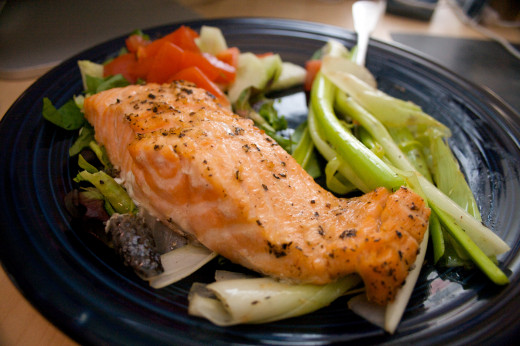
Fish - The Brain Food
Besides being an excellent source of protein which is low in fat, fish is among the only natural sources of omega-3 fatty acids. Fish is also rich in vitamins B-12, B-6, and potassium. Fish also contains iron, zinc, calcium, magnesium, vitamin C and iodine.
The omega-3 fatty acids in fish, DHA and EPA are very important to brain and heart health. Fattier fish like salmon, trout, sardines, herring, mackerel, tuna, and oysters are higher in these beneficial fatty acids. Omega-3s support heart health by lowering blood pressure and preventing heart attack, abnormal heart rhythms, and stroke. In the brain and nervous system, omega-3s work to prevent depression, ADHD, Alzheimer's, dementia and diabetic nerve damage. They may also benefit joint health and prevent inflammation related to arthritis.
No other food compares to the B vitamin power of fish! Salmon is the highest B12 food, while tuna is the highest source of B6. B12 keeps your skin and hair look great, and may prevent certain cancers. But the most popular benefit of vitamin B12 is it's ability to help your body access energy. Most energy supplements contain large amounts of B12. Ditch the Monster Energy Drink and eat salmon instead! B12 also helps lessen depression and anxiety. Vitamin B6 plays an even greater role in mental health, supporting the synthesis of neurotransmitters such as dopamine and serotonin. B6 is also essential for breaking down protein from your foods for use in your body, and plays a key role in immune system health.
Tips for Eating More Fish
- Fish Tacos
- Salmon Burgers
- Fish in soups and stews
- Tuna Salad
- Replace chicken with Tuna in any recipe, particularly casseroles
- And of course, baked, grilled, or pan-fried
#4- Leafy Greens
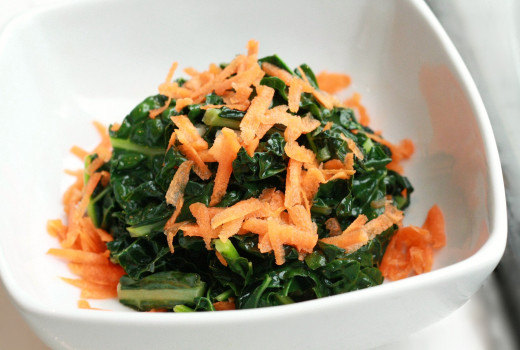
Spicy Drunken Collard Greens
This is my favorite recipe for collard greens, and it's really simple. You can also use other greens in place of collards if you prefer.
STEP 1. Over a medium-low heat, render about 1/4 lb of bacon. Maple smoked or pepper bacon is particularly good, but any bacon will do.
STEP 2. When some of the fat is rendered, and before the bacon starts to brown at all, add 1 cup of chopped onions and 1/2 tsp of cayenne pepper. Continue cooking until bacon and onions brown.
STEP 3. Add about 2 lbs of collard greens, rinsed and with the big center vein removed. Pour 12 ounces of a dark beer, like Guinness, and 1 can (14.5 ounces) of chicken broth over the greens and simmer, covered, until the greens are tender but not mushy, stirring occasionally, about 30-40 minutes.
All ingredients may be adjusted to taste. Adding the cayenne early subdues some of the spice. If you like yours spicier, add a little more when you add the beer. You may also try adding roasted jalapeños for an extra layer of flavor.
Nutrition Powerhouse - Hard Sell
Leafy greens like kale, collards, swiss chard, spinach, and romaine lettuce are excellent sources of Vitamins A, C, and K, and good sources of calcium, potassium, iron, magnesium, and B vitamins. They're also contain fiber, phytochemicals, and antioxidants which help prevent age-related and chronic disease conditions like cardiovascular disease, kidney stones, osteoporosis, high cholesterol, declining vision and cataracts, and fatigue. Leafy greens may also prevent certain cancers, particularly colon cancer.
You should be aiming for at least about 1 cup cooked or 2 cups raw leafy greens 2-3 times a week. For some people, this may be one of the most challenging foods to eat more often, because a lot of people don't enjoy the taste of leafy greens. Often, that's because we're used to the 1970s recipes from magazines like Better Homes and Gardens, which were more about introducing easier methods to busy homemakers than taste temptations. Today, with the accessibility of culinary instruction on television and the internet, it's easy to find recipes and methods that will have even the pickiest eaters asking for seconds.
Find Recipes for Leafy Greens
- Food Network Recipes & Easy Cooking Techniques
Find 1000s of Food Network's best recipes from top chefs, shows and experts. And watch videos demonstrating recipe prep and cooking techniques. - Allrecipes - Recipes and cooking confidence for home cooks everywhere
Allrecipes is the #1 place for recipes, cooking tips, and how-to food videos—all rated and reviewed by millions of home cooks.
#3- Berries
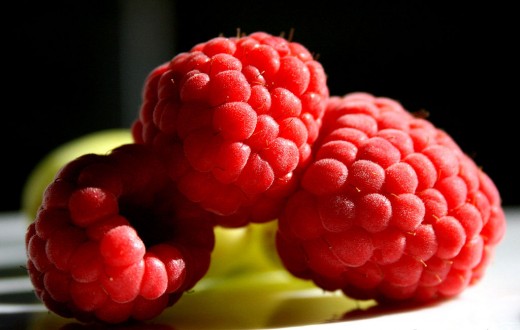
Also Great for Acne
Raspberries, blackberries, and blueberries are a natural source of salicylic acid, the active ingredient in many acne face wash brands, such as ProActiv. Salicylic acid is a metabolite of aspirin which occurs naturally in many plants, as a component of their immune system. Salicylic acid has anti-inflammatory properties when used either topically or internally. Other common topical uses are foot callus removal creams, and anti-dandruff treatments. When ingested in the form of certain berries, it can reduce the hardening of arteries which leads to heart disease, and reduce minor joint pain.
Berries are Truly Deserving of the Label "Superfoods"
Berries are full of amazing natural compounds that are antimicrobial, anti-inflammatory, antihistamine, and not least of all, antioxidant. That means that berries protect you from damaging effects of bacterial and fungal microbes in your body, ease inflammation, help control minor seasonal allergies, support a healthy immune system, prevent certain cancers, prevent heart disease, and control aging!
Berries can be as much as 20% dietary fiber by weight, which is very important for digestion, a healthy immune system, and nutrient absorption. Berries are an excellent source of Vitamin C, and also contain magnesium, potassium, vitamin A, vitamin B6, folic acid, iron, calcium, manganese, and copper.
Hormones, pigments, flavonoids, and other compounds in berries, may also help ease depression, anxiety, age-related dementia, such as Alzheimer's, and prevent declining vision. They may also help control diabetes and support weight loss and weight maintenance.
While Acai and Goji berries are the big, popular buzzwords lately, don't discount all the berries you already know: strawberries, raspberries, blackberries, blueberries, cranberries, grapes and cherries.
Tips for Using Berries
- Simple jam: Heat berries on stove top with honey, or apple juice concentrate, and a little lemon juice. Mash with a potato masher until smooth and spreadable. Depending on the berry, you may want to add a splash of water or apple juice.
- In baking: Add to any recipe. The sky's the limit: pancakes, muffins, cakes, etc. You may need to adjust the liquid ratio, or bake time, of the recipe, depending on the berry.
- As a healthy ice cream topping.
- Pie!
- Fruit salsa: replace tomatoes with sweet, ripe strawberries for an interesting new twist to any salsa recipe.
- And of course, Smoothies: Simply blend frozen berries with yogurt, milk and ice.
#2- Broccoli
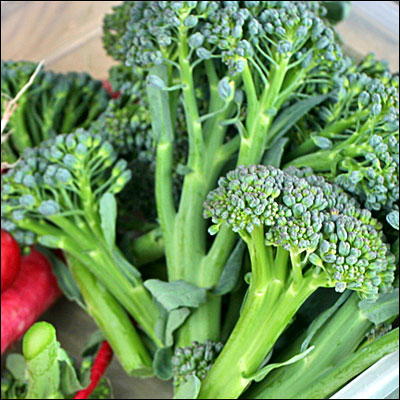
Does Cooking Destroy Vitamin C in Fruits and Vegetables?
Unfortunately, heat does break down vitamin C. Potentially, two-thirds of vitamin C may be cooked out of broccoli if it is boiled. However, steaming or roasting broccoli retains more of the vitamin C. And, when lightly cooked- heated thoroughly, but still with plenty of bite- the vitamin C it contains is actually more available in the body. Besides, cooking any crispy vegetable until it's soft destroys the flavor. Much like brussel sprouts or cooked spinach, many people think they don't like them, because they've only had them poorly prepared.
So Much Nutrition in Such a Small Package
Broccoli is an excellent source of vitamin C and vitamin K, 135% and 116% Daily Value, respectively. It is also a very good source of folic acid, vitamin A, manganese, dietary fiber, potassium, vitamin B6, vitamin B2, molybdenum, and phosphorus. Broccoli also contains vitamin B5, protein, magnesium, calcium, choline, vitamin B1, iron, vitamin E, selenium and vitamin B3.
All of those vitamins and minerals make broccoli an excellent choice for immune support, heart health, eye health, digestive health, bone and muscle health, brain health, and energy support. Broccoli also has anti-inflammatory properties, may prevent certain cancers, helps reduce the damaging effects of chronic high blood sugar, helps lower cholesterol, may prevent stomach ulcers, and may help control mild allergies.
Tips for Using Broccoli
- Raw in Salads
- Grilled: Cut in long spears with florets and stalk, brush in olive oil, and grill over high heat until some browning occurs outside, but still firm inside.
- Oven Roasted: Toss broccoli florets with olive oil, fresh diced garlic, and parmesan cheese. Spread on foil lined baking sheet and bake until lightly cooked.
- Add to Muffin Recipes
- In an Omelette
- Broccoli Slaw: shred stalks and use instead of cabbage in any slaw recipe
#1- Sweet Potato

Relax, Eat a Sweet Potato
Sweet Potatoes are full of nutrients that help us cope with stress, anxiety, depression and seasonal affective disorders. During the winter months, when the days are shorter, the Vitamin D produced in your body as a result of exposure to sunlight is much less. Eating sweet potatoes helps restore Vitamin D levels. Vitamin B6 and Iron help combat fatigue, which also leads to better coping with stress. Vitamin C is also important to combat these conditions. But perhaps most importantly, magnesium is essential in relaxation and anti-stress. With an estimated 80% of the US population deficient in magnesium, it's no wonder that these conditions are so commonplace.
Sweet, Indeed
Sweet potatoes are high in Vitamin A, B6, potassium, manganese, and fiber. They are a good source of thiamin, riboflavin, niacin, B5, tryptophan, magnesium, phosphorus, and copper. They also contain protein, Vitamin E, Vitamin K, folate, calcium, iron, zinc, low glycemic index carbohydrates, and omega-6 fatty acids.
The low glycemic index carbohydrates in sweet potatoes do not cause a spike in blood sugar, which makes them an excellent alternative to white potatoes, particularly for people with diabetes and those watching their sugar intake. Sweet potatoes may reduce the risk of cardiovascular disease and heart attack, strengthen the immune system, and contribute to bone, muscle and nerve health. They also promote collagen production, which improves the skin's elasticity and helps slow the physical appearance of aging.
Tips for Using Sweet Potatoes
- Sweet Potato Fries: Just toss with oil and some seasoning salt, and bake until crispy.
- Sweet Potato Pie
- In Soups, Stews, and Chilis
- Mashed
- Baked
- Grilled: Just slice about 1/2 inch thick, brush with oil and season with salt and pepper. Throw on the grill until the outside is browned
- Sweet Potato Chips
- Sweet Potato Hashbrowns
Summary
The benefits of these six nutrient dense foods is immense. Try working more of each into your diet. Let me know if you've discovered different ways to enjoy them, which ones you love, and which ones you struggle to eat more of.
If you want to take this a little further, in the video to the right, Alton Brown has broken down a lists of foods to eat daily, eat often, and eat sparingly, which works on similar ideas of focusing on nutrient dense foods.
For a full breakdown of the foods that you need in your diet for complete nutrition, visit:
Thanks for reading!
If you like this hub, please click here to share it.
I love hearing your feedback, or suggestions for what I should cover next, so PLEASE leave me a comment below.
If you have questions, comment below. I do read and respond! It's always an open discussion in my hubs :)
Be sure to follow me on Hubpages for new articles!
You can follow me on Facebook at:
facebook.com/yourcoachmatt
and
facebook.com/iqpawf
And on Twitter @yourcoachmatt
For information about personal coaching, book your free consultation from the 'Book Now' tab at fb.com/yourcoachmatt. Limited spaces available!


